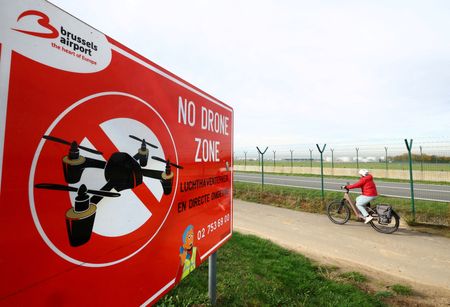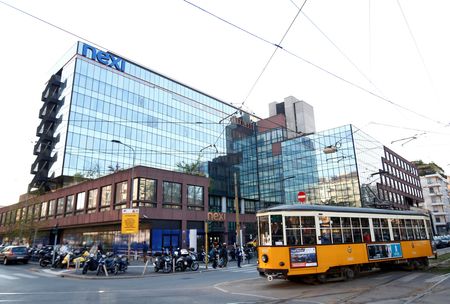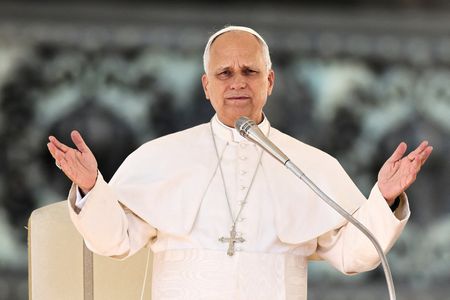By Lili Bayer and Philip Blenkinsop
BRUSSELS (Reuters) -Belgium has enlisted the help of foreign armed forces to seize or track down drones that have made incursions around its airports, military bases and a nuclear plant, with officials saying it all bears the hallmarks of Russian interference.
Drone sightings forced authorities to close Brussels Airport, Belgium’s busiest, for hours last Tuesday – one of a series of recent incursions that also caused brief closures at cargo hub Liege airport and disrupted an airbase.
“We’re not saying it’s Russia. We’re saying it looks like Russia. It’s impossible to connect any incident with an actor. We have nothing,” a Belgian official said, speaking on condition of anonymity because they are not authorised to speak on the record.
“We are working with partners to try to get our hands on a drone, or detect where it is launched from and where it’s going.”
Russia has denied any involvement with the drones. Its Brussels embassy said in a statement last week it had “neither motive nor interest in such activities”.
Belgium’s Defence Minister Theo Francken told Het Laatste Nieuws last week there were assumptions that Russia was behind the incursions, “but I can’t prove it”.
Belgium was, he said, being closely monitored because of Russian assets frozen at Brussels-based securities depository Euroclear. The EU has proposed using those funds to finance Ukraine. Russia has threatened to make a “painful response” if that happens.
French and German anti-drone teams have arrived in Belgium, with 20 British Royal Air Force specialists due to deploy with systems that can jam the electronic signals that drones require to operate.
“We don’t know, and the Belgians don’t yet know the source of those drones, but we will help them by providing our kit and capability,” Richard Knighton, head of Britain’s armed forces, told the BBC.
In some cases, the drones seen were large and flying in formation, which means they are likely to have been operated by trained specialists, the Belgian official said.
On Friday, the Belgian government also gave provisional clearance on Friday to spend 50 million euros ($58.3 million) on systems to detect drones and to put them out of action, although it is not clear when that equipment will be available.
($1 = 0.8575 euros)
(Reporting by Lili Bayer and Philip Blenkinsop; Additional reporting by Liz Piper in London; Editing by Andrew Heavens)











